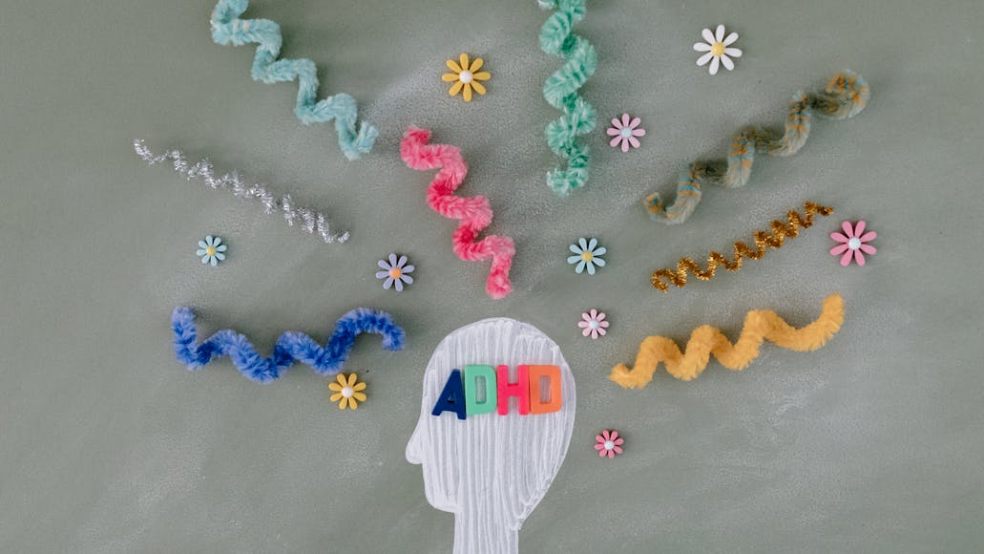
How Weak Executive Functioning Skills Impact Your Daily Life
We all feel lazy sometimes. It’s totally okay. But those days when you feel like you’re herding cats in your head, with thoughts darting everywhere and nothing quite sticking. Nothing could be worse than that.
If that happens to you often, the cause lies in weak executive functioning skills. This chaos traces back to the prefrontal cortex. The part of the brain that is responsible for more than one-fourth of your everyday mental load, from picking outfits to plotting weekend plans.
Let's take a closer look at how weak executive functioning skills impact your daily life.
Shifting priorities without warning
Imagine you're knee-deep in a report preparation at work, words are flowing smoothly, when a random email pops up. Suddenly, you forget about your report and stress over the pending bill payment you missed the day before.
Weak executive functioning means your brain struggles to hold onto one goal amid distractions. It's like trying to juggle balls while someone keeps tossing in more. Over time, you're left with multiple unfinished projects, not only at work but in personal life, too.
You might start organizing your closet, only to pivot to fixing a leaky faucet midway. The result? A buildup of small frustrations that chip away at confidence. To counter this, some individuals turn to structured checklists, breaking their days into timed blocks. Yet, without addressing the root cause, those aids only go so far.
Amplified emotional responses
Emotions can spike like a sudden storm when impulse control wavers. A minor setback, say a spilled drink, might trigger an outsized reaction that lingers far longer than it should.
This stems from executive functions that normally act as a filter, helping you pause and assess before responding. Without that buffer, interactions turn tense. Think about a casual chat with a friend turning into a heated argument over nothing.
Some people with ADHD describe it as feeling "raw" all the time, where every critique at work feels like a personal attack. This strain shows up in relationships, too, making it hard to maintain steady connections. Kids and teens, especially, face this in school settings, where a teacher's comment can spiral into avoidance of classes. Adults might notice it in parenting, snapping at little ones over small messes.
The key insight here is the cycle it creates: heightened responses lead to regret, which then feeds anxiety about future slip-ups. Breaking this requires building awareness, perhaps through journaling reactions after the fact.
Persistent working memory gaps
Forgetting where you left off in a conversation or recipe mid-step happens to everyone occasionally. But when working memory stalls consistently, it turns simple activities into mazes.
You're chatting on the phone, and someone interrupts - the thread vanishes. This is not absent-mindedness; it's the brain dropping the ball on temporarily holding information. At home, it might mean rereading emails multiple times or losing track during grocery shopping, leading to extra trips.
In professional life, it complicates learning new software or following multi-step instructions. One unique angle to consider is how this gap amplifies decision fatigue. Each forgotten detail forces a restart, draining mental energy faster. Students often hit this wall during exams, blanking on formulas they knew cold earlier. Parents juggling schedules might double-book appointments, creating chaos.
To navigate it, visual aids like sticky notes work, but pairing them with verbal rehearsals strengthens recall. Executive functioning tutoring can make a real difference here, offering personalized drills to rebuild that mental holding space without overwhelming the learner.
Delayed initiation of routines
Getting started on something as basic as brushing teeth or answering emails can feel like pushing a boulder uphill. This procrastination doesn’t come from lack of will; it's the brain's starter motor sputtering.
Mornings stretch out with endless scrolling instead of prepping for the day. Over weeks, neglected habits pile up, eroding a sense of control. Some people thrive in the morning but can’t move a hand after lunch. It's particularly sneaky in creative fields, where ideas flourish but execution lags behind. The impact spreads to health, with delayed meals leading to erratic energy levels.
Socially, arriving late to gatherings and straining friendships. A fresh tip: link new routines to existing ones, such as tying exercise to your coffee time. This chaining reduces the mental hurdle. Therapy sessions often reveal underlying perfectionism that fuels the delay, so addressing it unlocks progress.
Summary
Tackling these effects head-on starts with small, targeted steps. Try apps for habit tracking or consult a specialist for a custom plan. Building a support network, whether through groups or pros, lightens the load. Remember, awareness is the first move toward smoother days. With consistent effort, those ripples can calm, letting you steer your routine more steadily.




















